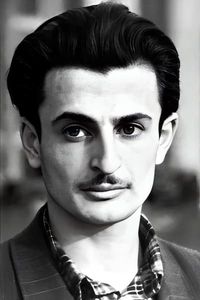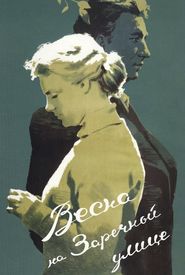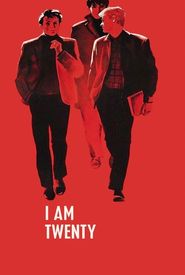Marlen Martynovich Khutsiev, a highly acclaimed and influential Georgian-born film director, came into this world on October 4, 1925, and his remarkable journey on this earth finally came to an end on March 19, 2019. During his illustrious career, he left an indelible mark on the world of Soviet and Russian cinema, with the 1960s being a particularly pivotal period in his life, as it was during this time that he created a series of cult films that have continued to captivate audiences to this very day, leaving behind a lasting legacy that is still felt and revered by many.
Khutsiev's cinematic odyssey commenced in 1949, as he embarked on a journey of artistic expression by enrolling in the esteemed directing department at the renowned Gerasimov Institute of Cinematography, a revered institution that has nurtured some of the most talented filmmakers in the industry.
Upon completing his studies in 1952, Khutsiev's career trajectory took a significant turn as he secured a position as a director at the illustrious Odessa film studio, where he honed his craft and contributed to the studio's impressive repertoire of cinematic masterpieces from 1952 to 1958.
In the year 1956, a pivotal moment in the cinematic career of Khutsiev unfolded, as he unveiled his inaugural feature film, Spring on Zarechnaya Street, which masterfully captured the essence of the Khrushchev Thaw, a period of significant social and cultural change in Soviet Russia. This groundbreaking film would go on to become one of the most successful box-office draws of the 1950s, cementing Khutsiev's status as a rising talent in the world of Soviet cinema.
Fast forward to 1959, three years after the release of Spring on Zarechnaya Street, Khutsiev once again made cinematic history by launching the career of the renowned actor Vasily Shukshin, by starring him in the critically acclaimed film, Two Fyodors. This bold move not only catapulted Shukshin to stardom but also introduced the world to a new kind of popular hero, one that would leave a lasting impact on the Soviet film industry and beyond.
Khutsiev's vision and innovative storytelling ability, as showcased in Spring on Zarechnaya Street and Two Fyodors, not only solidified his position as a leading figure in Soviet cinema but also paved the way for a new generation of filmmakers to follow in his footsteps.
Despite achieving remarkable success with his iconic films "I Am Twenty" and "July Rain" in the 1960s, Khutsiev's work was met with disapproval from the authorities, leading to a prolonged period of artistic silence and creative dormancy.
It wasn't until 1978 that Khutsiev's passion for filmmaking was reignited, as he embarked on a new chapter in his career by taking on the esteemed role of a film directing master class instructor at the prestigious VGIK.
As he resumed his creative endeavors, Khutsiev's artistic voice was once again amplified, leaving a lasting impact on the world of cinema.
Khutsiev's professional trajectory continued to garner widespread acclaim, culminating in 1991 when his film Infinitas was honored with the esteemed Alfred Bauer Prize at the 42nd Berlin International Film Festival, a milestone that solidified his reputation as a master filmmaker. Throughout his remarkable career, Khutsiev's dedication to his craft was consistently recognized, with the prestigious distinction of being named a People's Artist of the USSR in 1986, a testament to the profound and lasting influence he exerted on the world of cinema.



























